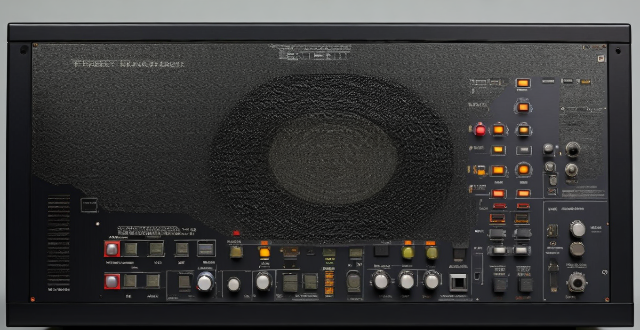A faulty sound card can cause system instability, hardware conflicts, software issues, performance degradation, audio quality problems, heat and power issues, and even affect BIOS/UEFI settings. It is important to regularly update drivers, properly install the sound card, monitor system temperature and power usage, and replace a suspected faulty card to avoid these issues.

Can a Faulty Sound Card Cause Other Problems in My Computer System?
A faulty sound card can indeed cause other problems in your computer system, although the extent of these issues depends on various factors such as the nature of the fault, the components involved, and the overall health of your system. Here are some potential problems that could arise:
System Instability
- A faulty sound card might lead to system crashes or freezes, especially if it's causing resource conflicts with other hardware components.
- The drivers for the sound card may not be compatible with your operating system, leading to blue screens of death (BSOD) or spontaneous restarts.
Hardware Conflicts
- If the sound card is improperly installed or has a physical defect, it can interfere with the normal operation of other devices connected to the same I/O bus.
- Resource allocation errors can occur, where the sound card incorrectly claims resources needed by other devices, causing those devices to malfunction.
Software Issues
- Corrupted or outdated sound card drivers can create compatibility issues with your OS or other software applications.
- Certain multimedia applications that rely on audio processing might crash or fail to launch if they cannot communicate properly with the faulty sound card.
Performance Degradation
- A failing sound card can slow down your entire system due to constant error checking and handling mechanisms being triggered.
- In extreme cases, the processor might spend an excessive amount of time attempting to manage the faulty hardware, detracting from other tasks.
Audio Quality Problems
- Obviously, a bad sound card will produce poor audio quality, which can range from subtle hissing and pops to complete audio failure.
- This can affect not just media playback but also voice communication during video conferencing or gaming.
Heat and Power Issues
- Some faulty sound cards may draw more power than they should, potentially leading to overheating or increased strain on your power supply unit.
- Overheating can further damage the sound card itself or adjacent components on the motherboard.
BIOS/UEFI Settings
- In rare instances, a severely faulty sound card might even prevent your system from booting into the BIOS/UEFI setup utility if it's set as the primary boot device or is causing an electrical short.
Recommendations
To avoid these issues, it is recommended to:
- Regularly update your sound card drivers to ensure compatibility with your operating system.
- Properly install the sound card, ensuring it doesn't interfere physically or electronically with other components.
- Monitor your system's temperature and power usage to detect any abnormalities early on.
- If the sound card is suspected to be faulty, test it in another computer or replace it altogether.
By taking these precautions and maintaining your system diligently, you can minimize the risk of a faulty sound card causing widespread problems throughout your computer setup.